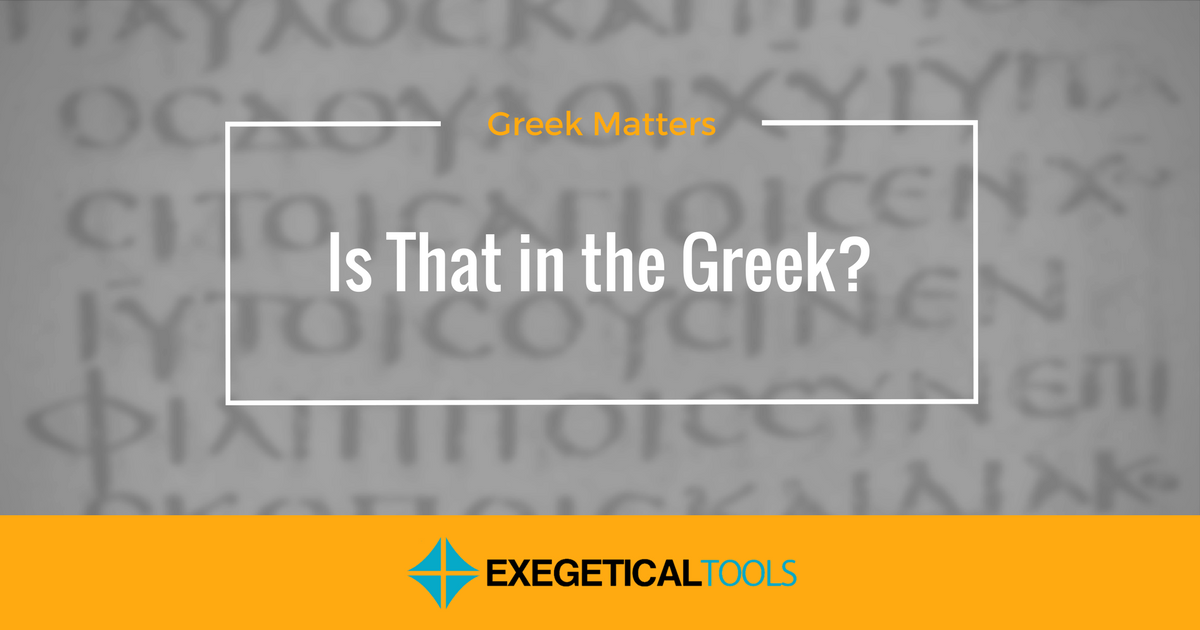
This post was written by a former student after he completed his final Greek class at Westminster Theological Seminary.
“Keep your Bibles open. My job is to preach the text; your job is to make sure what I’m saying is really there,” my pastor said to begin his Easter morning sermon.
Liam was appropriately preaching out of John 20, so I slipped out my Greek New Testament and tried to follow along in it. In doing so I was continuing a practice I started during second semester Greek. A practice I’m likely to keep on doing, not just to keep up my Greek skill, but to do as Liam said: see if what he’s saying is really there.
I struggle with Greek. With vocabulary and grammar significantly. But learning Greek and practicing Greek opens up vistas. The reality is that the more I learn, the more I can trust my pastor’s interpretation of the Bible and the more I can trust my own.
The third semseter of Greek here at Westminster is all about thinking about grammar and syntax, not just cramming paradigms and vocab. Knowing Greek grammar begins to show where the ESV has gone with a simple gloss. Simple glosses can have various meanings in English (Purpose? Result? Neither? Who knows!?!?). But seeing ἵνα or ὅτι or a participle or infinitive reveals what our possible options of interpretation are. Knowing case rules (most epsecially the Genitive), though difficult and tricky for me, helps me to think what the biblical authors really meant by our English “of.”
This is no small thing, no mere academic exercise. I can more confidently know what the Word of God is truly saying. That is monumental! Sure, I can now see textual variants and issues in the apparatus causing some interpretive distress at times. But the grand sum is an even greater confidence that what I read in the Bible is actually there, because I’m reading it in the language it was originially written.
A few times, I have been reading the Bible in my devotional time and have seen an “of” or a “that” or an “-ing” verb and have stopped to grab my Greek text in order to know what the original says. I’m stopping to see if what I’m interpreting, what I’m about to preach to myself is actually in the text. Learning Greek better enables me to do as Pastor Liam has urged us to do, both when he preaches to the Congregation and when I read on my own.
Greek really does matter. If yours is rusty or you want to improve, let us guide you through some texts to get you going.
